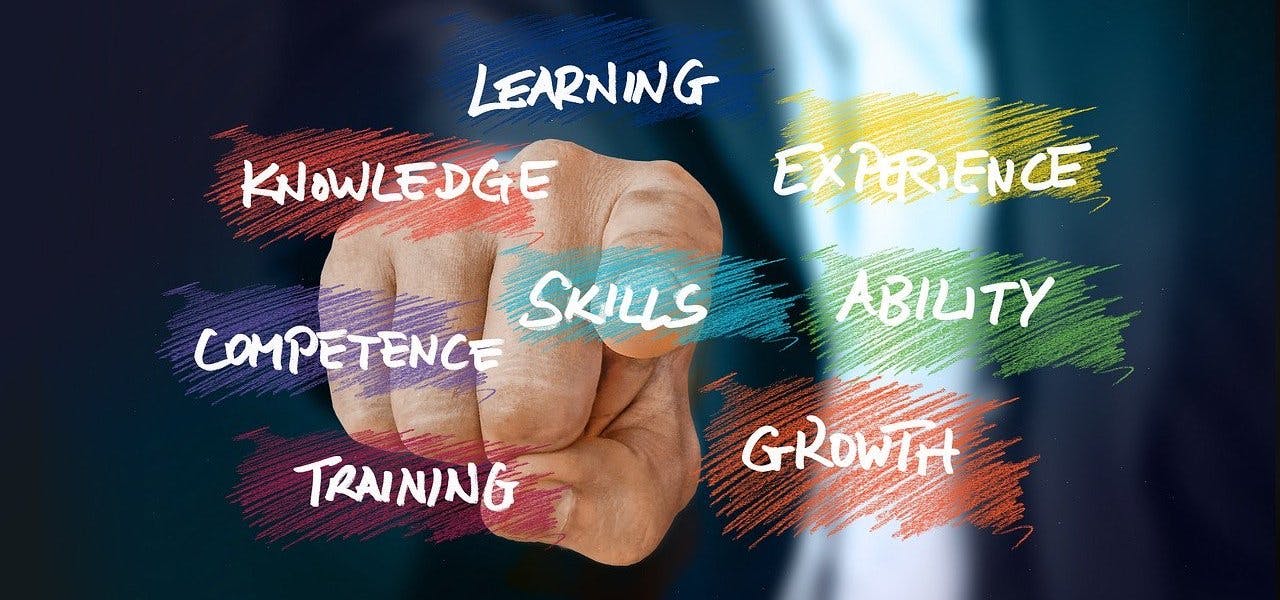What does re-skilling look like? For some it might take a long time, months, or even years. In the case of formal re-skilling, it means going back to school to pursue at least a two-year degree. Most graduate programs, in particular, are two years, and re-skilling through an institution means added costs in terms of tuition, but also added benefits in terms of new hard skills and networking abilities. Not to mention some schools have that brand recognition that can go a long way in job interviews.
However, during an economic downturn, many are thinking that it’s not the best time to go back to school, but still, some are optimistic that at least some type of bootcamp or online program will get them back out into the workforce sooner, faster, and with more satisfaction. The online realm is growing too. In 2017 alone, the number of postsecondary enrollments dropped by 900,000 in the U.S., while during the same school year the number of students who started to take some of their courses online increased by 350,000. Students and professionals alike have reported that taking an online course at their own pace can be less stressful and more rewarding in terms of certification and re-skilling.
Informal Re-skilling and adapting to the workplace
In the case of informal re-skilling, there are more options. Informal re-skilling might be something as simple as listening to your colleagues or acquiring new skills through leisure time or going to a work event and becoming interested in a new topic that you start studying in the evenings.
Informal learning might not be the same as the deep expertise you get from attending a college and going to in-person classes and meeting with professors about your grades, but it is convenient and for certain people might be the most accessible or even effective method.
For example, learning about new databases while at work is one way that re-skilling goes beyond the theory that is learned about in the classroom. Because re-skilling is not just about the skill, it’s about the performance outcome for jobs, learning how to navigate new programs is a great way to gain new and meaningful expertise.
SalesForce is one major database that is used in the business sector, the non-profit and humanitarian sector, and even in marketing and sales. Simply becoming acquainted with SalesForce and making it a habit to watch YouTube series on this database at night is one way to re-skill.
Individual effort and different approaches to learning
Other ways of re-skilling in an informal manner might be more subtle, like enhancing your communication style. Before Covid-19, employees were re-skilling all the time with face-to-face interactions and learning how to come up with proposals in meetings and talk to board members for example. Now, employees are re-skilling through the usage of Zoom and becoming savvy talking to other co-workers in different time zones, and knowing when it is appropriate to first touch base.
These ways of taking up informal re-skilling are really based on individual effort though, and being ambitious and having that edge that allows you to see when things are worth learning or not. In the case of formal re-skilling, you are paying for the experience of learning, so it might come easier but the trade-off is that you might go through a formal education system and finish without understanding the mentality of informal re-skilling—that skills can be learned anywhere and at any time. That’s why there’s been so much criticism about the siloed approaches of some formal education systems.
Still, perhaps a bit of both is the best way to go. We don’t think about it much, but doing simple activities like reading a news article every morning or exercising before work is technically a pre-cursor to re-skilling if these activities increase our cognition for the rest of the day. That’s also the more challenging part about re-skilling writ large—is constantly having that re-skilling mindset.
